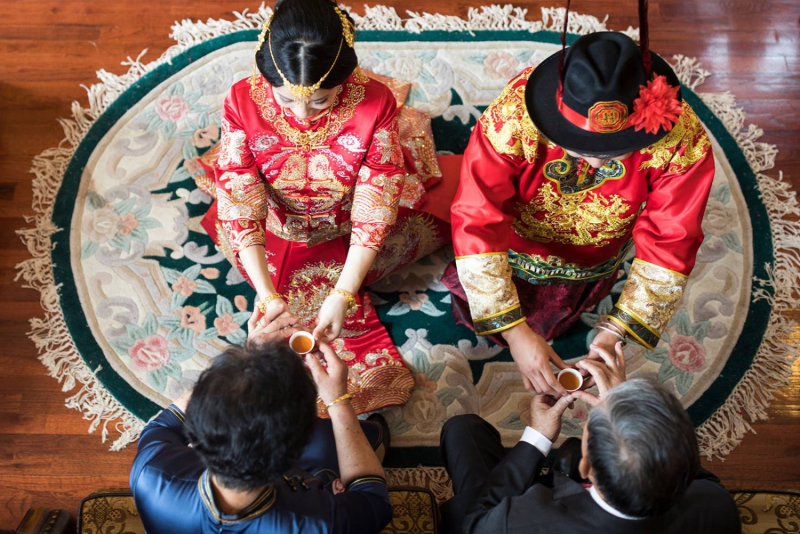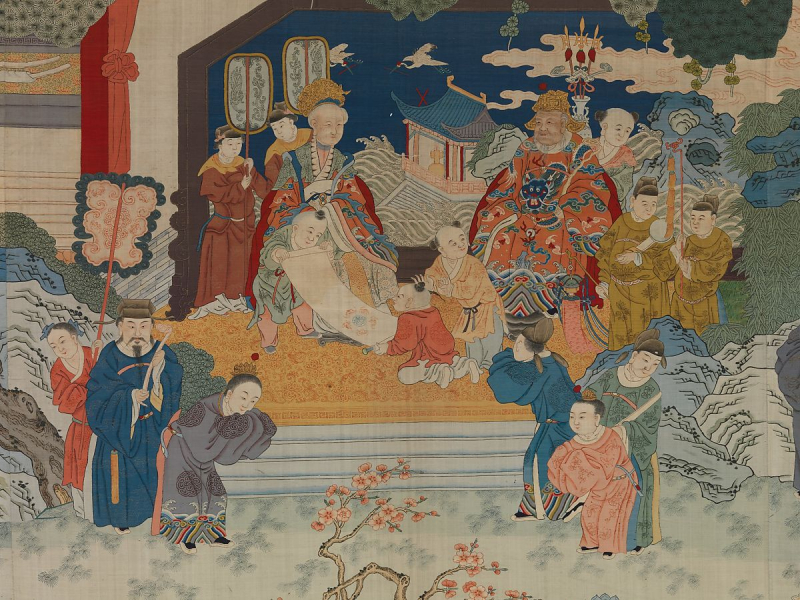Etiquette in celebrations and condolences
China has long been seen as a civilization of interpersonal relationships, where numerous rituals and laws have been established and people look out for one another. Festival and celebration etiquette is crucial, especially at these times. When people worship or express their gratitude, they should be respectful and bend over while saying "Congratulations!" They should also provide a gift as a token of their appreciation.
People will experience several stages of life, such as birth, adulthood, marriage, birthday celebrations, and death, among others. People in China have had a consistent manner of acting at many life events throughout history.
- At a feast honoring a newborn baby's first month, family and friends come to congratulate and present the baby healthy food, clothing, and shoes. A coming-of-age ceremony occurs when the child matures; in ancient China, the term "capping and hairpin ceremony" referred to the man receiving a capping ceremony and a new name at the age of 20. This ritual demonstrated their readiness to wed and interact with society. The female is also given a hair-pinning ritual at the age of 15, which represents the age of marriage.
- At the age of 18, schools will hold a communal adult oath-taking ceremony that emphasizes adult consciousness as part of the modern coming-of-age celebration. The wedding is an important occasion in one's life, hence society values it. There are six steps in the wedding that are referred to as "the six rituals of the Duke Zhou." First, the bridegroom proposes with betrothal presents, then he asks the girl's name, then he consults a fortune teller, then he sends wedding gifts to the bride's family, then he asks her to choose the wedding date, and finally he goes to the bride's house to accompany her to the ceremony. The six rites were reduced to three in the Song Dynasty, which are the first, fourth, and final steps. The bride will make a special offering to Heaven and Earth as well as to their parents at the wedding ceremony, which takes place when the bridegroom visits her house and escorts her there. After the wedding, they will continue the tradition of toiling up a hairpiece cut from the bride and the bridegroom and sipping "cross-cupped wine" in the bridal chamber. The host will organize a sizable meal on the wedding day as the guests arrive to congratulate the newlyweds.
- After turning 40, an elderly person receives a birthday celebration. People will celebrate their birthdays on that day, and friends and family will visit to offer gifts of congratulations. Everyone will have a funeral ceremony, which is the final ceremony of their life. Chinese culture places a high value on dying, thus funeral etiquette is crucial. When someone passes away from a natural cause, it is considered lucky, and people show their sorrow and condolences by bringing an elegiac couplet, a long elegiac scroll, and financial gifts. Within three to five days, the deceased are placed in a casket and buried. The protocol observed during celebrations and funerals represents the spirit of cooperation and social cohesion.
- The fundamentals of etiquette are to love others, be modest, and respect other people. People can only be regarded by others if they maintain a low profile and treat others with respect. Society will be more harmonious if those of higher class lower themselves to associate with those of lower class. The adage "to be excellent, to be modest" is quite widespread. Being respectful of one another is different from being polite or giving a formal salute. Otherwise, the manners are impertinent and inconsistent with the accepted standards of decency. In today's society, good moral character is encouraged along with the etiquette conventions of respect and modesty.









